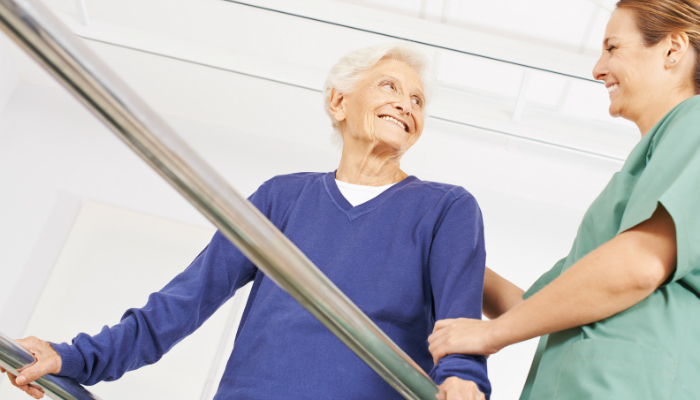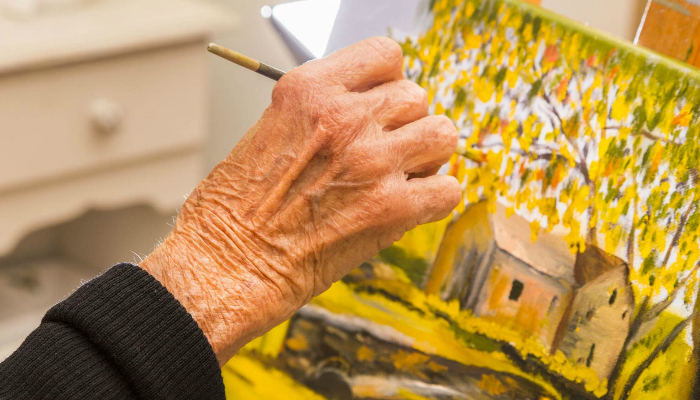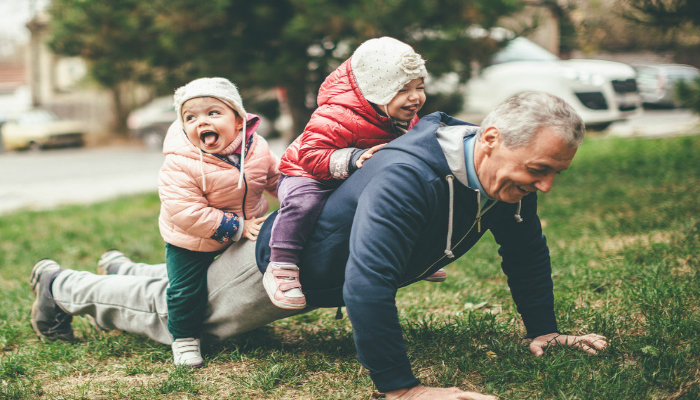
Ups and downs are inevitable in life and probably such events happen more often as one grows older. Falls and sickness are likely to occur in old age and many a time, recovery can be a long and painful process for elders. This is because with aging the immunity levels are low and the repair mechanisms in the body slow down. Complete recuperation may take years or seem impossible making life frustrating and demoralizing. But that does not mean the end!
Regaining confidence after a fall or bout of sickness works wonders in the healing process. Physicians and research reinstate that there is a strong relationship between the mind and the physical body and these two systems can actually be never separated. That is so because both of them function in coherence-the heart circulates blood and the lungs aid in breathing while the brain generates thought waves continuously. Due to this interconnectivity, stress and pessimism can aggravate any prevailing sickness or medical condition to dangerous levels thereby endangering human life itself. On the other hand, an optimistic approach boosts the predictability of long and healthy living.
Seniors must have a positive and healthy mindset as it impacts their independence and daily routines. This attitude is more crucial in their context because they are more likely to face chronic health problems and acceptance goes a long way in expediting the rejuvenation. So it is essential to remove the negative thoughts, feelings and emotions that influence the body anatomy. A happier and peaceful outlook helps the body in maintaining stress levels and releasing appropriate chemicals (hormones and enzymes) that keeps one fit and strong. This is analogous to the ‘cause and effect relationship’. Let us explore how it can be done.
Ways to regain confidence
Perhaps the first significant step is to understand this concept fully- ‘While it is important to drill down to the cause of the health issue or an unfortunate event (like a fall/fracture) for taking treatment, diagnosis must not be perceived as a lifetime limitation’.
Merely worrying about chronic health problems will only increase the fear and sickness making recovery cumbersome. The saying goes ’Where there is a will there is always a way!’ So, certainly, there are many alternatives for coping up with the situation and subsequently heading towards normalcy. The following steps may be adopted-
1. Quick Lifestyle Changes
Hastily trying to resume the regular routine before betting cured of a prolonged illness or a bad fall can cause a sickness relapse. Instead, try this approach:
- Take time for recovery without exerting yourself too hard.
- Jot down realistic goals that can be pursued once you get better to relieve mental pressure. These goals must be carefully planned and prioritized so that they are achievable.
- Evolve your social network cautiously. Responding to emails, text calls and calls must be done with caution and kept brief so that it doesn’t hamper the healing duration.
- Do not use gadgets like tablets and smartphones at the cost of compromising the rest times. Blue light emitted from these devices can cause mental and physical fatigue.
2. Consuming the right restorative foods
For proper recuperation, the body needs additional nutrients in the form of vitamins and minerals apart from medication. So take a lot of fresh fruits and vegetables, easily digestible wholegrain and anti-inflammatory foods, hot water with lemon juice and herbal smoothies to revive the appetite. Foods with high glycemic index that sap energy like processed items and sugar must not be consumed as they cause abnormal fluctuations in the blood sugar levels and overexert the digestive system.
3. Being well hydrated
Increase the fluid intake and avoid alcohol for flushing out the toxins from the body and developing resistance against the attack of virus and bacteria. Plain water is beneficial as it ensures the proper lymph fluid flow to combat any remaining traces of illness by evenly circulating white blood cells in the body.
4. Begin exercising
Being physically active is important as it creates a demand for energy which the body must produce naturally. However, use a cautious and slow-paced approach to exercise initially to avoid strain and build it incrementally. Therapies like physiotherapy and yoga are helpful for recovering from physical injuries and impairments. Elders confined to bed may try doing gentle stretches to warm up the muscles under the supervision of professionals and alternate it with deep breathing techniques to energize the body. Practicing meditation is greatly advisable as it strengthens the mind and has a substantial impact on the healing phase.
5. Seek external help
Though self-reliance is important, it must be developed only after complete recovery. Loading too many responsibilities on the self can be detrimental to complete relief from sickness. Hence senior patients should seek the help of their family members, friends or caretakers and delegate responsibilities if required. External help may also be availed through professional geriatric services for therapy, nutrition, assistance in daily routines and other care needs.
Remember to take slow and steady steps towards work, fitness and life for making recovery an enjoyable phase for a healthier tomorrow!




